22 Nov 2017 | Mapping Media Freedom, media freedom featured, News and features
[vc_row][vc_column][vc_single_image image=”96621″ img_size=”full” add_caption=”yes” alignment=”center”][vc_column_text]Governments have arsenals of weapons to censor information. The worst are well-known: detention, torture, extra-judicial (and sometimes court-sanctioned) killing, surveillance. Though governments also have access to less forceful but still insidious tools, such as website blocking and internet filtering, these aim to cut off the flow of information and advocacy at the source.
Another form of censorship gets limited attention, a kind of quiet repression: the travel ban. It’s the Trump travel ban in reverse, where governments exit rather than entry. They do so not merely to punish the banned but to deny the spread of information about the state of repression and corruption in their home countries.
In recent days I have heard from people around the world subject to such bans. Khadija Ismayilova, a journalist in Azerbaijan who has exposed high-level corruption, has suffered for years under fraudulent legal cases brought against her, including time in prison. The government now forbids her to travel. As she put it last year: “Corrupt officials of Azerbaijan, predators of the press and human rights are still allowed in high-level forums in democracies and able to speak about values, which they destroy in their own – our own country.”
Zunar, a well-known cartoonist who has long pilloried the leaders of Malaysia, has been subject to a travel ban since mid-2016, while also facing sedition charges for the content of his sharply dissenting art. While awaiting his preposterous trial, which could leave him with years in prison, he has missed exhibitions, public forums, high-profile talks. As he told me, the ban directly undermines his ability to network, share ideas, and build financial support.
Ismayilova and Zunar are not alone. India has imposed a travel ban against the coordinator of a civil society coalition in Kashmir because of “anti-India activities” which, the government alleges, are meant to cause youth to resort to violent protest. Turkey has aggressively confiscated passports to target journalists, academics, civil servants, and school teachers. China has barred a women’s human rights defender from travelling outside even her town in Tibet.
Bahrain confiscated the passport of one activist who, upon her return from a Human Rights Council meeting in Geneva, was accused by officials of “false statements” about Bahrain. The United Arab Emirates has held Ahmed Mansoor, a leading human rights defender and blogger and familiar to those in the UN human rights system, incommunicado for nearly this entire year. The government banned him from travelling for years based on his advocacy for democratic reform.
Few governments, apart from Turkey perhaps, can compete with Egypt on this front. I asked Gamal Eid, subject to a travel ban by Egyptian authorities since February of 2016, how it affects his life and work? Eid, one of the leading human rights defenders in the Middle East and the founder of the Arab Network for Human Rights Information (ANHRI), has seen his organisation’s website shut down, public libraries he founded (with human rights award money!) forcibly closed, and his bank accounts frozen.
While Eid is recognised internationally for his commitment to human rights, the government accuses him of raising philanthropic funds for ANHRI “to implement a foreign agenda aimed at inciting public opinion against State institutions and promoting allegations in international forums that freedoms are restricted by the country’s legislative system.” He has been separated from his wife and daughter, who fled Egypt in the face of government threats. The ban forced him to close legal offices in Morocco and Tunisia, where he provided defence to journalists, and he lost his green card to work in the United States. He recognises that his situation does not involve the kind of torture or detention that characterises Egypt’s approach to opposition, but the ban has ruined his ability to make a living and to support human rights not just in Egypt but across the Arab world.
Eid is not alone in his country. He estimates that Egypt has placed approximately 500 of its nationals under a travel ban, about sixteen of whom are human rights activists. One of them is the prominent researcher and activist, Hossam Bahgat, founder of the Egyptian Initiative for Personal Rights, who faces accusations similar to Eid’s.
Travel bans signal weakness, limited confidence in the power of a government’s arguments, perhaps even a public but quiet concession that, “yes indeed, we repress truth in our country”. While not nearly as painful as the physical weapons of censorship, they undermine global knowledge and debate. They exclude activists and journalists from the kind of training that makes their work more rigorous, accurate, and effective. They also interfere in a direct way with every person’s human right to “leave any country, including one’s own,” unless necessary for reasons such as national security or public order.
All governments that care about human rights should not allow the travel ban to continue to be the silent weapon of censorship – and not just for the sake of Khadija, Zunar, and Gamal, but for those who benefit from their critical voices and work. [/vc_column_text][/vc_column][/vc_row][vc_row][vc_column][vc_custom_heading text=”Mapping Media Freedom” use_theme_fonts=”yes”][vc_separator color=”black”][vc_row_inner][vc_column_inner width=”1/4″][vc_icon icon_fontawesome=”fa fa-times-circle” color=”black” background_style=”rounded” size=”xl” align=”right”][/vc_column_inner][vc_column_inner width=”3/4″][vc_column_text]
Since 24 May 2014, Mapping Media Freedom’s team of correspondents and partners have recorded and verified 3,597 violations against journalists and media outlets.
Index campaigns to protect journalists and media freedom. You can help us by submitting reports to Mapping Media Freedom.[/vc_column_text][/vc_column_inner][/vc_row_inner][vc_separator color=”black”][/vc_column][/vc_row][vc_row][vc_column][vc_custom_heading text=”Don’t lose your voice. Stay informed.” use_theme_fonts=”yes”][vc_separator color=”black”][vc_row_inner][vc_column_inner width=”1/2″][vc_column_text]Index on Censorship is a nonprofit that campaigns for and defends free expression worldwide. We publish work by censored writers and artists, promote debate, and monitor threats to free speech. We believe that everyone should be free to express themselves without fear of harm or persecution – no matter what their views.
Join our mailing list (or follow us on Twitter or Facebook) and we’ll send you our weekly newsletter about our activities defending free speech. We won’t share your personal information with anyone outside Index.[/vc_column_text][/vc_column_inner][vc_column_inner width=”1/2″][gravityform id=”20″ title=”false” description=”false” ajax=”false”][/vc_column_inner][/vc_row_inner][vc_separator color=”black”][/vc_column][/vc_row]
6 Apr 2017 | Awards, Digital Freedom, News and features
[vc_row][vc_column][vc_column_text]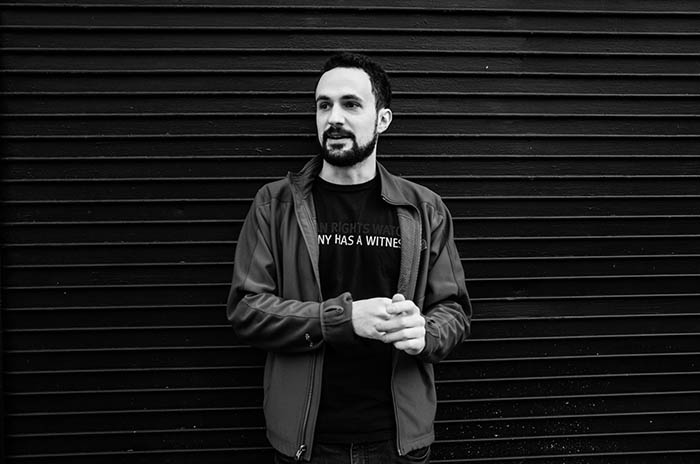
A schoolboy resident of Bahrain and a recent PhD student in computer science at the University of California, Berkeley, Bill Marczak co-founded Bahrain Watch in 2012. Seeking to promote effective, accountable and transparent governance, Bahrain Watch works by launching investigations and running campaigns in direct response to social media posts coming from activists on the front line. In this context, Marczak’s personal research has proved highly effective, often identifying new surveillance technologies and targeting new types of information controls that governments are employing to exert control online, both in Bahrain and across the region. In 2016 Marczak investigated several government attempts to track dissidents and journalists, notably identifying a previously unknown weakness in iPhones that had global ramifications.

Index spoke with Marczak in the run up to the Freedom of Expression Awards, where he is nominated for the Digital Activism award.
Ryan McChrystal: In the summer of 2016 you discovered a previously known weakness in Apple’s iPhone that had global ramifications. Can you talk us through how that first came to light?
Bill Marczak: In August of 2016, Ahmed Mansoor, an activist in the UAE, reached out to me after he had received suspicious text messages. I had known him previously because he gets suspicious things in his inbox or on phone quite frequently. He sent me these text messages and asked me to take a look. The messages said: “New secrets about detainees tortured in UAE prison.” And there was a link inside the text message which I recognised because it was connected to a series of websites I had been tracking for the past six months or so. I had already attributed them to the NSO Group (an Israeli spyware company).
At that point, I was able to get the spyware they were using to target Mansoor
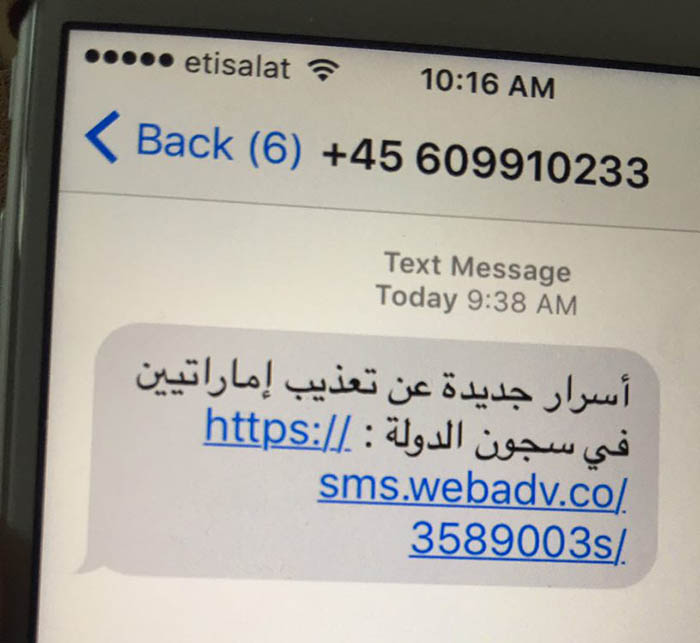
McChrystal: What does the software actually allow governments to do? What are the dangers for activists?
Marczak: The malware that NSO sells, called Pegasus, is actually pretty sophisticated in what it can collect. In the security community, the iPhone is generally thought to be more secure because Apple goes to such lengths to lock down and make it really, really hard to install an application from outside the App Store and to do something to the device that’s not approved by Apple. The fact that this malware even existed and could affect an iPhone in the single touch of a button was very surprising. Once your phone is infected, the malware would essentially be able to see everything on the device. If you had any saved passwords, for example, they would all be sent back to whoever infected you. That person would also get the ability to intercept your calls, SMS, Whatsapp, Viber, or any other communication service you use.
Perhaps most scarily, the malware allowed the user to turn on the webcam and the microphone on your iPhone to spy on activity going on around the phone. This could be used to spy on meetings or to see who you were hanging around with.
McChrystal: And this was was the first piece of malware of its kind.
Marczak: That’s correct. It was the first known zero-day remote jailbreak for the iPhone that was used as part of spyware. A jailbreak is a piece of software that allows you to get around Apple’s security precautions for the phone. Jailbreaking started out as a way for hobbyists and enthusiasts to install their own software not approved by Apple on the iPhone, so it was a very innocuous line of research. But once iPhones became more popular, people started putting their whole lives on their phones. That’s when jailbreaks became really, really valuable to people who would want to spy on iPhone users.
Nowadays, there are companies that will pay you if you sell them software or the code that jailbreak the phone. Some companies, like Zerodium, offer up to $1.5m. Presumably they’ll then be able to sell it to interested users for even more.
McChrystal: How did Apple respond when you informed them of your discovery?
Marczak: Working with the folks at Citizen Lab, I got in touch with Apple very early on in the process to alert them of what we had found. Initially, when we called up Apple was like: “Yeah, yeah, sure, send us some details and we’ll take a look.” When we sent what we were able to pull down from those links, the tone changed right away and they realised this was really serious. They said: “Give us more information because we want to work closely with you on this.”
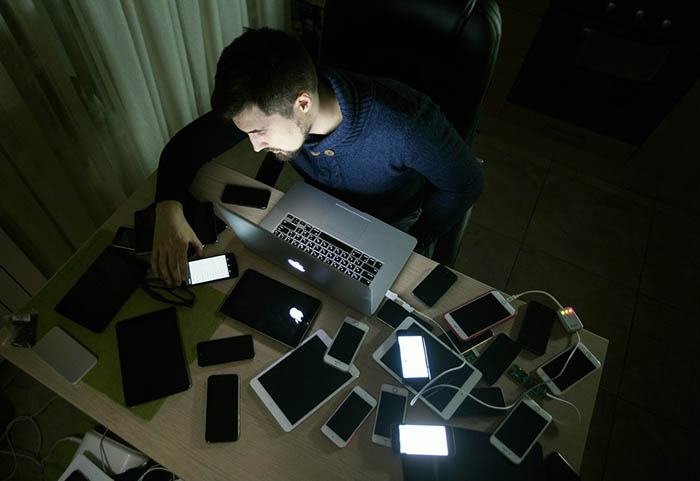
McChrystal: How are governments using this kind of malware maliciously? And why should human rights activists specifically be worried?
Marczak: This kind of software can be used, for instance, in legitimate criminal investigations, but it can also be used essentially for anything the government wants to use it for. Once NSO Group sells the spyware to a government, that’s where NSO’s ability to control things ends. The government can then decide who it wants to target, who it wants to infect. If sold to a government agency that has a history of abusing surveillance, it’s likely they are going to abuse it to target human rights defenders and political opponents.
It’s something that human rights activists should be concerned about because everything is moving online these days. They are on their phones, communicating with other activists, human rights violations are being documented by videos or pictures on the phone. Your confidential or secret sources might be a WhatsApp contact, or a Signal contact if you’re even more secure.
If just one person has been infected, governments can map out an entire network of human rights defenders or opponents. They can keep tabs on an entire operation or human rights infrastructure in a country.
McChrystal: By bringing this malware to light, how many people’s privacy do you think you’ve helped to protect? Is there a way to put a number on it?
Marczak: The patch that Apple released, which coincided with the report that I published with Citizen Lab, went out to every iPhone user around the world. Apple subsequently issued a patch to every Mac laptop and desktop user. The number is in the high hundred of millions, if not billions of people whose phones and computers were patched.
Of course, not all of those people would have been affected, but having that sort of broad impact was very exciting.
McChrystal: Are you yourself now in danger of cyber attacks? Have there been any attempts that you’ve noticed?
Marczak: It’s something that I’ve thought a lot about. If you look at the security industry as a whole, researchers themselves can be very easily targeted. There have been instances where foreign intelligence agencies have targeted anti-virus companies, for instance, to figure out what they are working on next.
That’s the main risk I am worried about: if some foreign intelligence agency decides “hey, Bill’s working on some interesting stuff. Let’s hack him and see what he’s up to.”
When I’ve done some work in the field, for instance in the Middle East, I think through a set of operations security procedures like how to prevent someone coming into my hotel room when I’m away and bug my laptop.
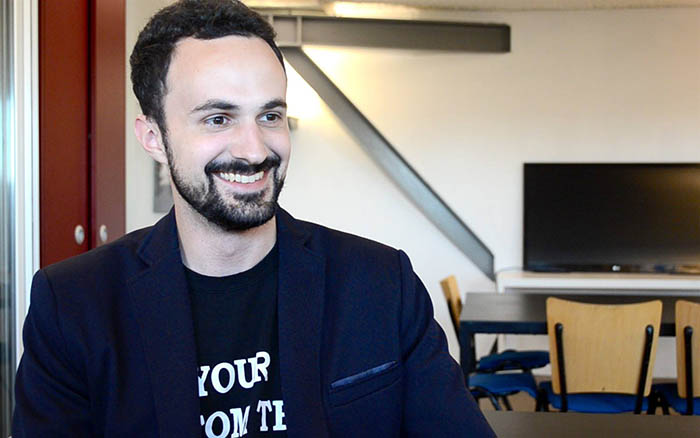
McChrystal: What’s your connection to Bahrain and how did that lead to the establishment of Bahrain Watch?
Marczak: My own connection with Bahrain began in 2002. I went to high school there because of my dad’s job. Going to high school in a place, you obviously develop a lot of connections and experiences that tie you there, at least emotionally. Bahrain very much feels like one of my homes.
While I was there, I was never much interested in the political situation. But going back to the USA for college and observing from abroad, I did start to notice by reading the international media that there were certain things not right with the country, especially in 2011, when the Arab Spring protests started. Once I saw that police were shooting protesters in the street, and that one of my homes was in crisis, I though if there was a way that I, a computer science student sitting in Berkeley, California, could do anything to have a positive impact on the situation.
At the time, I didn’t really know what to do. I started following Bahraini activists, people on the ground and those who were actually at the protests. Those involved in the Arab Spring very much engaged with the rest of the world through social media. They sometimes sent out pictures of shotgun shells or tear gas canisters, asking if anyone knew who was manufacturing and supplying the government with them.
I was able to respond to these requests and see if I could find out some new information. I started off doing research into the various kinds of weapons that the police were using. That initial research got me some recognition among activists on the ground. We got in touch and developed connections which led us to decide to found Bahrain Watch in 2012.
Bahrain Watch initially focused on these arms, but them later expanded to documenting western PR companies that the government had hired to influence the media narrative. It expanded from there to a bunch of different areas.
McChrystal: The situation for human rights activists in Bahrain is changing, and in many ways it’s become more difficult. What does this mean for Bahrain Watch operations over the next year?
Marczak: You’re definitely right that the situation on the ground is very bad. In the past year we’ve seen the continued harassment of human rights defenders on the ground. One of the things we are trying to do going forward is to is, we started off in 2012 as an all-volunteer organisation and we were very much sustained by the energies and the passions of the Arab Spring.
But in the years since, a lot of that energy has died off to an extent, not just in Bahrain, but in the broader activist community. One of our challenges going forward has been to try and formalise the organisation so that we’re actually getting funding and have the capacity and resources to undertake more longer-form types of work. We’ve got some of that already, we have gotten a bit of funding, and we’re looking mainly to continue our work with digital security, so trying to provide support and advice to dissidents on the ground to help enhance their security posture, given the ongoing crackdown by the government.
At the same time we want to do more broader types of investigations into corruption more closely into the government’s strategy of controlling the media.
See the full shortlist for Index on Censorship’s Freedom of Expression Awards 2017 here.[/vc_column_text][/vc_column][/vc_row][vc_row full_width=”stretch_row_content” equal_height=”yes” el_class=”text_white” css=”.vc_custom_1490258749071{background-color: #cb3000 !important;}”][vc_column width=”1/2″][vc_custom_heading text=”Support the Index Fellowship.” font_container=”tag:p|font_size:28|text_align:center” use_theme_fonts=”yes” link=”url:https%3A%2F%2Fwww.indexoncensorship.org%2Fsupport-the-freedom-of-expression-awards%2F|||”][vc_column_text]
By donating to the Freedom of Expression Awards you help us support
individuals and groups at the forefront of tackling censorship.
Find out more
[/vc_column_text][/vc_column][vc_column width=”1/2″ css=”.vc_custom_1490258649778{background-image: url(https://www.indexoncensorship.org/wp-content/uploads/2016/04/donate-heads-slider.jpg?id=75349) !important;background-position: center !important;background-repeat: no-repeat !important;background-size: cover !important;}”][/vc_column][/vc_row][vc_row][vc_column][vc_basic_grid post_type=”post” max_items=”4″ element_width=”6″ grid_id=”vc_gid:1491488367891-c15491ac-4f30-3″ taxonomies=”8734″][/vc_column][/vc_row]
3 Mar 2015 | About Index, Campaigns, Press Releases, Statements
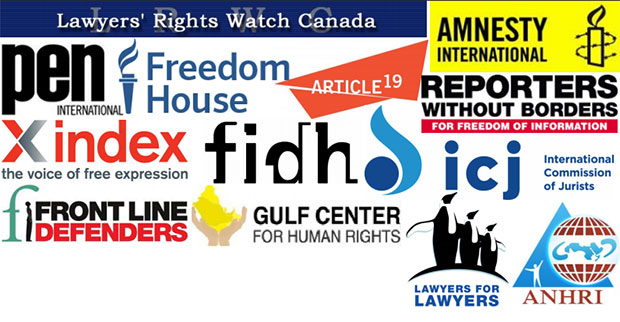
On the second anniversary of the start of the mass “UAE 94” trial that imprisoned dozens of government critics and reform activists in the United Arab Emirates (UAE), including prominent human rights defenders, judges, academics, and student leaders, a coalition of 13 organizations calls on the UAE government to release immediately and unconditionally all those imprisoned solely for peacefully exercising their rights to freedom of expression and association following this grossly unfair trial, as well as those who remain detained or imprisoned for publicizing concerns about it. The organizations also call on the authorities to ensure that the allegations of torture and other ill-treatment that the individuals were subjected to prior to and following their trial are promptly, independently, impartially and thoroughly investigated, that those responsible are held to account, and that the victims have access to effective remedies and to reparation.
The organizations share the serious concerns raised since 2011 by several UN human rights bodies and human rights organizations regarding the UAE government’s continuing pattern of harassment, secret, arbitrary and prolonged incommunicado detention, torture and other ill-treatment, enforced disappearances, and unfair trials targeting activists and those critical of the authorities, as well as its increasing use of national security as a pretext to clamp down on peaceful activism and to stifle calls for reform.
The space for dissent in the UAE is increasingly shrinking. The repression has been entrenched with the enactment in 2012 of the cybercrimes law, which the government has used to silence social media activists and others who support and defend freedom of expression online, and the enactment of the 2014 counter-terror law. The vague and overly broad definition of terrorism in the 2014 law, which treats a wide range of activities, including those protected by human rights standards, as amounting to terrorism, may be used to sentence human rights defenders or critics of the government to lengthy prison terms or even death.[1]
The organizations call on the UAE government, which currently is a member of the UN Human Rights Council, to adhere to its obligations to uphold human rights at home, including respecting the rights to freedom of opinion and expression, and to freedom of association and peaceful assembly.
The anniversary of the mass trial, widely known as the “UAE 94” trial, coincides with the anniversary of the March 2011 petition from a group of 133 high-profile women and men addressed to the UAE President, which called for democratic reform. The petition elicited an uncompromisingly repressive response from the UAE authorities and many of its signatories, and their families, have been harassed, arbitrarily arrested, or imprisoned in the four years since they put their names to their call for reform.
The UAE 94 trial, which began on 4 March 2013 before the State Security Chamber of the Federal Supreme Court in Abu Dhabi, saw a total of 94 defendants, including eight who were charged and tried in absentia, stand trial en masse on the charge of establishing an organization that aimed to overthrow the government, a charge which they all denied. The trial failed to meet international fair trial standards and was widely condemned by human rights organizations and UN bodies, including the UN Working Group on Arbitrary Detention. The court accepted prosecution evidence that consisted largely of “confessions” made by defendants while they were in pre-trial detention. The court failed to require, before the admission of such evidence, that the prosecution prove beyond reasonable doubt that the “confessions” were obtained by lawful means and voluntarily from the accused. The court also failed to take steps to investigate, or order a prompt, independent, impartial and thorough investigation of the defendants’ claims that State Security interrogators had forced them, under torture or other ill-treatment, to make false “confessions” incriminating themselves and others during months when they were held incommunicado in secret locations and without access to lawyers or the outside world. The defendants were also denied a right of appeal to a higher tribunal; under UAE law, Federal Supreme Court judgments are final and not subject to appeal.[2]
On 2 July 2013, the court convicted 69 of the 94 defendants, including the eight tried in absentia, and acquitted 25. The defendants included many people who had achieved prominence in the UAE in their respective fields in the law, education and academia, business, and as government advisers. The court sentenced to prison terms of between seven and 15 years many well-known figures including: prominent human rights lawyer and law professor Dr Mohammed Al-Roken, who has written a number of books and journal articles on human rights, freedom of expression, and counterterror laws; high profile lawyers Dr Mohammed Al-Mansoori and Salem Al-Shehhi; judge Mohammed Saeed Al-Abdouli; law professor and former judge Dr Ahmed Al-Zaabi; lawyer and university professor Dr Hadef Al-Owais; senior member of the Ras Al-Khaimah ruling family Sheikh Dr Sultan Kayed Mohammed Al-Qassimi; businessman Khalid Al-Shaiba Al-Nuaimi; Science teacher Hussain Ali Al-Najjar Al-Hammadi; blogger and former teacher Saleh Mohammed Al-Dhufairi; student leader Abdulla Al-Hajri; and student and blogger Khalifa Al-Nuaimi who, before his arrest, had kept an active blog which he used to express criticism of the human rights situation in the UAE and the heavy-handed approach of the State Security apparatus.[3]
Others convicted at the trial include seven activists, known as the “UAE 7”, who had their citizenship arbitrarily withdrawn in 2011 and were told to leave the country. They are economist Ahmed Ghaith Al-Suwaidi; teacher Hussein Al-Jabri; former long-term employee of the Ministry of Presidential Affairs Hassan Al-Jabri; teacher Ibrahim Hassan Al-Marzouqi; former teacher Sheikh Mohammed Al-Sadeeq; Dr Shahin Abdullah Al-Hosni; and Dr Ali Hussain Al-Hammadi.
During the trial, the authorities took steps to prevent independent reporting of the proceedings. International media and independent trial observers were not permitted access to the court. Security authorities refused to allow an independent trial observer delegated by Amnesty International entry to the UAE immediately prior to the opening of the trial. Two independent observers sent by the International Commission of Jurists were turned away by plain-clothed security officials before they reached the Federal Supreme Court building.[4] Another international observer mandated by the International Federation for Human Rights, the Gulf Center for Human Rights, the Cairo Institute for Human Rights Studies, and the Arabic Network for Human Rights Information, was also denied access to the final trial hearing on 2 July 2013, despite an earlier indication by the UAE authorities that she would be allowed to attend.[5]
In November 2013, the UN Working Group on Arbitrary Detention issued an Opinion on the UAE 94 case, concluding that the UAE government had deprived the defendants of their right to a fair trial, enshrined in Article 10 of the Universal Declaration of Human Rights (UDHR). The Working Group on Arbitrary Detention found that the arrest and detention of the individuals had resulted from the exercise of their rights to freedom of opinion and expression and to freedom of peaceful assembly and association, guaranteed under articles 19 and 20 of the UDHR, stating that the restrictions on those rights could not be considered to be proportionate and justified. It declared the arrest and detention of the 61 defendants who were imprisoned following the mass trial to be arbitrary and called on the UAE authorities to release them and afford them appropriate reparation.[6]
Authorities also barred some of the defendants’ relatives from the courtroom; and others, who were permitted to attend, were harassed, detained or imprisoned after they criticized the proceedings and publicized torture allegations made by the defendants on the Twitter social media website.
In April 2013, a court sentenced Abdullah Al-Hadidi, the son of one of the UAE 94 who was convicted, Abdulrahman Al-Hadidi, to 10 months’ imprisonment on the charge of publishing details of the trial proceedings “without probity and in bad faith,” after he criticized the proceedings on Twitter. He was released in November 2013.
Blogger and netizen, Obaid Yousef Al-Zaabi, brother of Dr Ahmed Al-Zaabi, was arrested in July 2013 and again in December 2013, and was prosecuted on several charges based on his Twitter posts about the trial, including spreading “slander concerning the rulers of the UAE using phrases that lower their status, and accusing them of oppression” and “disseminating ideas and news meant to mock and damage the reputation of a governmental institution.” In June 2014, Obaid Yousef Al-Zaabi was acquitted of all charges but, despite this, the authorities continue to arbitrarily detain him, even though there is no legal basis for depriving him of his liberty. He remains in the prisoners’ ward of Sheikh Khalifa Medical City Hospital in Abu Dhabi, as he continues to suffer from advanced arthritis and rheumatism and has difficulty walking.[7]
Osama Al-Najjar, netizen and son of Hussain Ali Al-Najjar Al-Hammadi, was arrested in March 2014 and prosecuted for charges based on messages he posted on Twitter defending his father, who is one of the UAE 94. In November 2014, he was sentenced to three years’ imprisonment and a heavy fine for charges including “designing and running a website on social networks with the aim of publishing inaccurate, satirical and defaming ideas and information that are harmful to the structure of State institutions”; “offending the State”; “instigating hatred against the State”; and “contacting foreign organizations and presenting inaccurate information” about the UAE 94 trial and living conditions inside Al-Razeen Prison. He had no right to appeal the verdict and is imprisoned in Al-Wathba Prison, Abu Dhabi.[8]
The UAE 94 trial proved to be the centerpiece of the authorities’ broader crackdown targeting expression of dissent and advocacy of greater public participation in the governance of the UAE and other reform. At one stroke, the authorities removed from the public arena their most prominent critics and the country’s leading advocates of reform, while signaling to other potential dissenters that they will not tolerate open political debate in the UAE or any form of criticism of the government.[9]
The coalition is very concerned about the lack of space for rights organizations to do their legitimate work and about the repeated attempts by the UAE authorities or their supporters to eliminate freedom of expression for its residents, not only in the traditional media, but also on social media networks. On 28 October 2014, for example, high profile human rights defender and blogger Ahmed Mansoor’s Twitter account, in which he publishes his personal thoughts and views, was hacked. On 15 February 2015, three sisters, Asma Khalifa Al-Suwaidi, Maryam Khalifa Al-Suwaidi and Alyaziyah Khalifa Al-Suwaidi, were subject to enforced disappearance and there are serious concerns for their safety. The three sisters have campaigned peacefully online for the release of their brother, one of the UAE 94 prisoners, Dr Issa Al-Suwaidi, highlighting his unfair trial and the human rights violations to which he was subjected at the hands of UAE authorities. Dr Issa Al-Suwaidi is a respected academic and was the General Secretary of the Red Crescent in the UAE between 1996 and 1998.
On 16 February 2015, government-owned newspaper The National reported that the UAE government had adopted 36 recommendations made by the Human Rights Department of the UAE’s Ministry of Foreign Affairs after it carried out a study of international reports on the country’s human rights performance. The online newspaper said one of the recommendations was that an independent committee be established to review all allegations of torture, which the coalition endorses. However, the report disappeared from The National’s website the day after it was published, which is discouraging.[10]
The coalition urgently calls on the UAE authorities to implement recommendations by UN bodies and international human rights organizations to:
- release immediately and unconditionally all those individuals detained or imprisoned solely for peacefully exercising their rights to freedom of expression and association;
- prohibit the practice of secret detention;
- institute safeguards against torture and other ill-treatment, and ensure that all complaints or allegations of torture and other ill-treatment are promptly, independently and thoroughly investigated;
- ensure that victims of torture and other ill-treatment, arbitrary detention, and other human rights violations have access to effective remedies;
- ensure that all persons deprived of their liberty receive a fair and public hearing by an independent and impartial court in accordance with international human rights standards, including by having the right to appeal the judgment before a higher court or tribunal;
- publish the 36 recommendations made by the Human Rights Department of the UAE’s Ministry of Foreign Affairs, and implement the recommendation that an independent committee be established to review all allegations of torture;
- amend any legislation which impermissibly restricts the rights to freedom of expression, association and assembly, with a view to bringing all of these laws into full conformity with the UAE’s obligations under international human rights law, including the Universal Declaration of Human Rights; and
- ratify the International Covenant on Civil and Political Rights and its Optional Protocols, and the International Convention for the Protection of all Persons from Enforced Disappearance.
***********************************
Amnesty International
For more information please call Amnesty International’s Middle East and North Africa press officer Sara Hashah on +44 20 7413 5566 / +44 7778 472 126, or email: [email protected]
Arabic Network for Human Rights Information (ANHRI)
For more information, please email Rawda Ahmed, Deputy Executive Director and Head of Legal Aid Unit, on [email protected]
ARTICLE 19
For more information, please contact David Diaz-Jogeix, Director of Programmes, on [email protected]
Gulf Centre for Human Rights
For more information, please call Khalid Ibrahim on +961 70159552, or email: [email protected] www.gc4hr.org
Freedom House
For media inquiries, please email Robert Herman, Vice President for Regional Programs, on [email protected]
Front Line Defenders
For more information, please call Jim Loughran, Head of Media and Communications on +353 (0)1 212 3750, or email [email protected]
Index on Censorship
For more information, please contact Melody Patry, senior advocacy officer, on +44 207 260 2660 or [email protected]
International Commission of Jurists
For more information, please contact Said Benarbia, Middle East and North Africa Programme, on + 41 22 979 38 17 or [email protected]
International Federation for Human Rights (FIDH)
For more information, please contact Arthur Manet, Director of media relations, on +33 1 43 55 90 19 or [email protected]
Lawyers for Lawyers
For more information, please call Ms Adrie van de Streek, Executive Director on +31 (0)6 26 274 390 or email [email protected]
Lawyers’ Rights Watch Canada
For more information, please call Gail Davidson, Executive Director, on +1 (604) 736 1175, or email [email protected]
PEN International
For more information, please contact PEN’s Communications and Campaigns Manager Sahar Halaimzai on +44 (0) 20 7405 0338 or email [email protected]
Reporters Without Borders
For more information, please call Lucie Morillon, Programme Director on +33 1 44 83 84 71, or email [email protected]
[1] Gulf Centre for Human Rights, Front Line Defenders, Cairo Institute for Human Rights Studies, Arabic Network for Human Rights Information, UAE: Fear that Anti-Terrorism Law will be used to curtail human rights and target human rights defenders, 13 December 2014, http://www.gc4hr.org/news/view/850
[2] International Commission of Jurists, Mass Convictions Following an Unfair Trial: The UAE 94 Case, 4 October 2013, http://icj.wpengine.netdna-cdn.com/wp-content/uploads/2013/10/UAE-report-4-Oct-2013smallpdf.com_.pdf
[3] A few days before his own arrest in July 2012, Khalifa al-Nuaimi wrote on his blog about the wave of mass arrests by the UAE’s State Security apparatus, saying “You do not have the right to take a son from his father…a father from his son…a teacher from his students…a preacher from his audience…and imprison them unlawfully.”
[4] International Commission of Jurists, United Arab Emirates: ICJ condemns blatant disregard of the right to a fair and public trial, 12 March 2013, http://www.icj.org/united-arab-emirates-icj-condemns-blatant-disregard-of-the-right-to-a-fair-and-public-trial/?_sm_au_=iVV7R4317ftBnjDP
[5] Doughty Street Chambers, UAE denies International Legal Observer access to verdict in show trial of UAE 94, 1 July 2013, http://www.doughtystreet.co.uk/news/article/uae-denies-international-legal-observer-access-to-verdict-in-show-trial-of-; The coalition released two judicial observation reports based on interviews conducted by British human rights lawyer Melanie Gingell with family members who attended the hearings, local human rights defenders and activists, as well as international and local media: International Federation for Human Rights, Gulf Center for Human Rights, Cairo Institute for Human Rights Studies, the Arabic Network for Human Rights Information, United Arab Emirates: Criminalising Political Dissent, 27 August 2013, https://www.fidh.org/International-Federation-for-Human-Rights/north-africa-middle-east/united-arab-emirates/united-arab-emirates-criminalising-political-dissent-13879; Alkarama, Amnesty International, Arabic Network for Human Rights Information, Gulf Centre for Human Rights, Human Rights Watch, International Federation for Human Rights, UAE: Unfair Trial, Unjust Sentences, 3 July 2013, https://www.fidh.org/International-Federation-for-Human-Rights/north-africa-middle-east/united-arab-emirates/uae-unfair-trial-unjust-sentences-13590
[6] United Nations General Assembly, Human Rights Council, Working Group on Arbitrary Detention, Opinions adopted by the Working Group on Arbitrary detention at its 68th Session (13-22 November 2013), UN Doc A/HRC/WGAD/2013/60.
[7] Amnesty International understands that during the first few weeks after his arrest, a senior State Security Prosecution official told Obaid Yousef Al-Zaabi that he would not be released even if he went to trial and a court found him innocent.
[8] Reporters Without Borders, Online activist gets three years for criticizing torture of detainees, 2 December 2014, http://en.rsf.org/emirats-arabes-unis-online-activist-gets-three-years-02-12-2014,47327.html;
[9] Amnesty International, There is no freedom here – Silencing dissent in the United Arab Emirates (MDE 25/018/2014), 18 November 2014 https://www.amnesty.org/en/documents/MDE25/0018/2014/en/
[10] The National, “Government approval for 36 human rights ‘recommendations’, FNC hears”, 16 February 2015, http://www.thenational.ae/uae/government-approval-for-36-human-rights-recommendations-fnc-hears






